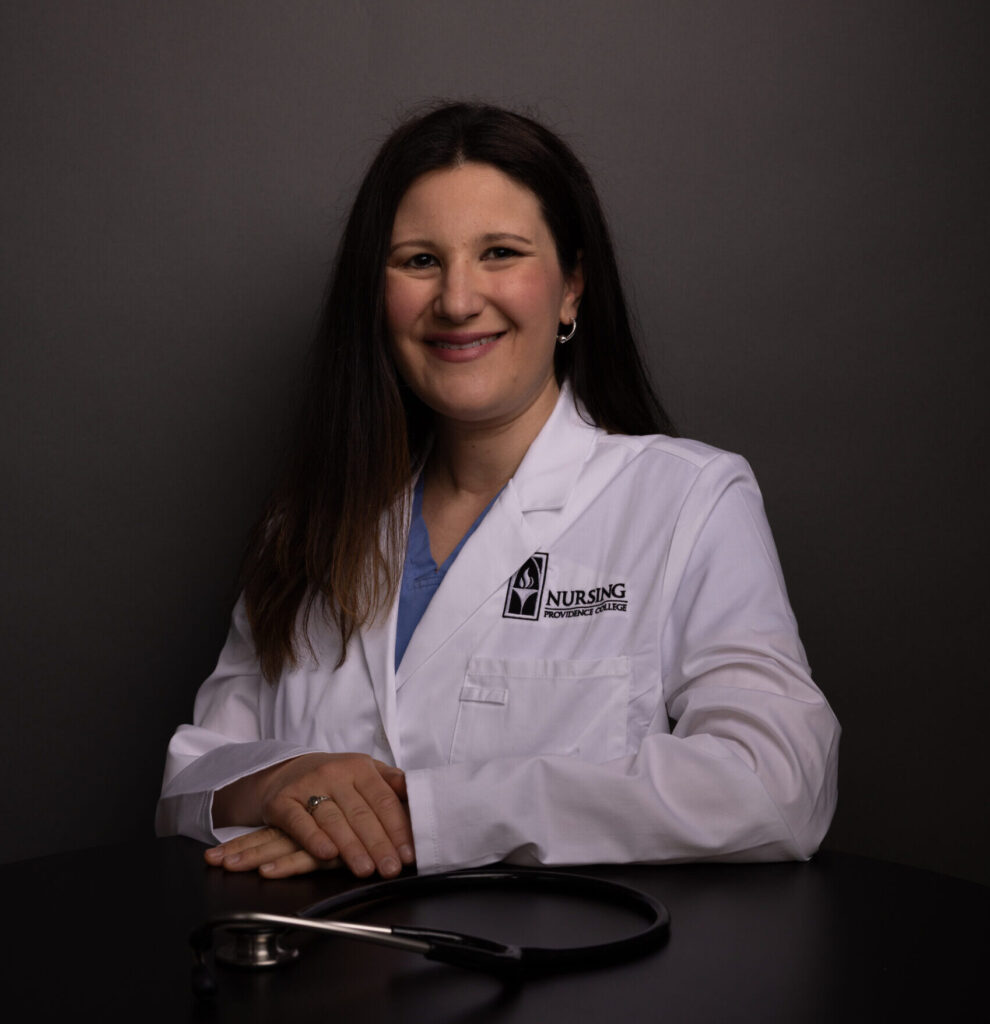Professor Jennifer Livesley
Witness to Dignity
Jennifer Livesley, RN, MSN, PMHNP-BC ’10, Assistant Clinical Professor of Nursing
Professor Jennifer Livesley’s path to nursing began at Providence College, though she didn’t realize it at the time.
As an undeclared student, she was interested in healthcare but was not sure which direction she wanted to take. Through Campus Ministry, she volunteered at Hasbro Children’s Hospital, where she was moved by the presence and compassion of the nurses. “The nurses inspired me in the personal care they provided to their patients, as well as their families” she recalls. Livesley’s mother is also a nurse and her devotion to nursing was another important factor in her final decision to pursue nursing.
With PC yet to open its nursing program, Professor Livesley graduated with a degree in Health Policy & Management and went on to complete an accelerated nursing program at Simmons University. She worked on inpatient medical and surgical units at Brigham and Women’s Hospital, where she encountered patients with both physical and mental health challenges. It was these clinical experiences that deepened her interest in holistic care and led her to pursue advanced training at Boston College as a psychiatric mental health nurse practitioner.
Recently returning to PC to help launch its nursing program, she shared how it felt like a homecoming, a handing on of what she received. “When I graduated, I knew there was something different about the way I practiced nursing relative to my colleagues,” she says. “I always felt it was because of my PC education.”
Caring for the sick is a work of mercy. These patients are experiencing immense suffering, and it is important for me to reach out to these patients in love and do whatever I can to support and advocate for them.
Professor Jennifer Livesley
For Livesley, PC’s liberal arts core cultivated a capacity for critical thinking that animates her work with patients. “I was taught to examine everything, ask questions, and to not take things at face value. When you’re at the bedside with a patient, you see everything: you’re putting things together and the critical thinking piece is important to high quality care.”
Additionally, it was this PC education that taught Livesley to see patients holistically, composed of body and soul, and bearing innate dignity. She sees these dimensions in the patients she serves. “Caring for the sick is a work of mercy. These patients are experiencing immense suffering, and it is important for me to reach out to these patients in love and do whatever I can to support and advocate for them.” Indeed, “all patients have dignity, no matter who they are and their walk of life. I treat everyone the same.”
Ultimately, Livesley hopes to convey that “nurses aren’t just technicians—we are healers.” In the classroom and in faith-based forums, she helps students explore how their faith can inform their vocation. “I know that when our nurses come out of PC, they’ll have intangible qualities that will set them apart,” she says. “You can teach someone a skill. But these intangible qualities must be fostered—and they’re fostered here.”






